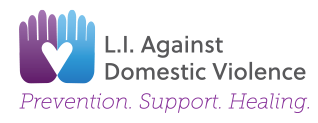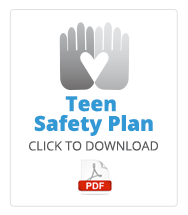
Teens and Dating Violence
Teen Dating Violence Statistics
- Violent behavior typically begins between the ages of 12 and 18
- Girls and young women between the ages of 16 and 24 experience the highest rate of intimate partner violence
- 1 in 3 adolescents in the U.S. is a victim of physical, sexual, emotional or verbal abuse from a dating partner
- About 1 in 4 teens in a relationship called or texted their partner every hour between midnight and 5am
- About 1 in 3 teens say their partner texted them between 10 and 30 times an hour asking where they are, what they’re doing, who they’re with, etc
- Among adult victims of rape, physical violence and/or stalking by an intimate partner, 22.4% of women and 15.0% of men first experienced some form of partner violence between 11 and 17 years of age
- 1 in 10 high school students has been purposefully hit, slapped or physically hurt by a boyfriend or girlfriend
Teen Dating Violence 101:
What is TDV?
Teen Dating Violence is a pattern of abusive behavior that someone uses against their partner to cause pain and gain power and control over them.
Forms of Abuse: same as DV
Physical – hitting, kicking, punching, slapping, scratching, biting, choking, hair pulling, physically restraining, grabbing, blocking a doorway, poking, pinching, throwing objects, etc.
Mental/Emotional/Psychological – Humiliating his/her partner, controlling what they can/cannot do, withholding information, deliberately doing something to embarrass their partner or make them feel diminished, isolation from family/friends, threatening suicide if their partner breaks up with them, extreme jealousy, not taking responsibility for their actions, etc.
Verbal – verbal threats, name calling, put downs, belittling, etc.
Sexual – not listening to the word “no,” rape, a completed or attempted sex act without consent, coerced sexual contact, unwanted touching, verbal or behavioral sexual harassment, threats of sexual violence, pressure/coercion to send personal pictures etc.
Cyber – demanding texts/calls be answered immediately, looking though partner’s cell to check texts/calls/social media, demanding passwords to online accounts, tracking partner’s activity through technology, sending/posting or threatening to send/post inappropriate pictures/content, etc.
Financial – using money or resources to control their partner, buying gifts in attempt to keep their partner in the relationship and/or to make up for abusive behavior, making their partner depend on them for food/clothes/rides, etc.
Common Excuses Justifying Unhealthy Behaviors
- “It’s not violence.”
- “That’s not abuse”
- “I was just joking!”
- “I was having a bad day.”
- “Jealousy is a normal part of any relationship.”
- “You got me upset.”
- “You made me angry.”
- “It only happened one time. It won’t happen again.”
- “You deserved it.”
- “I was drunk/high.”
- “I deserve your trust, even if I messed up before.”
- “I should be more important than your friends.”
- “I wasn’t trying to hurt you.”
Warning Signs for Victimization
These behaviors may indicate a teen is already a victim or has potential for becoming a victim of TDV.
- Isolation from family & friends
- Loss of interest in activities and hobbies that were once enjoyable
- Making excuses for a dating partner’s behavior
- Noticeable changes in eating or sleeping patterns, or alcohol/drug use
- Loss of self-confidence
Warning Signs for Perpetration
These behaviors may indicate a young person is already a perpetrator, or has potential for becoming a perpetrator of TDV.
- Threatening to hurt others in any way
- Insulting a dating partner in public or private
- Insisting on walking a dating partner to each class
- Damaging or destroying a dating partner’s personal belongings
- Attempting to control what a dating partner wears
Why Do They Stay?
- Love
- Confusion
- Belief you can change your partner
- Promises
- Denial
- Shame/guilt
- Fear of retaliation or harm
- Fear of being alone
- Loss of independence
- Low self esteem
- False hopes
- Peer or family pressure
- Distrust of police
- Fear of being “outed”
- Lack of information/resources
Who Can You Tell?
Abuse is likely to reoccur and escalate as time goes on. Tell anyone you trust! A teacher, a friend, a parent, a guidance counselor, a family member – just be sure to tell someone. You are not alone.
How to help a friend
If someone discloses to you that this is happening to them, be there for them, support them, do not judge them, and do not tell them what to do. Reassure them that the abuse is not their fault and that love shouldn’t hurt! Link them to someone else who can help them such as a parent, teacher, counselor, etc. Suggest our 24 hour hotline to them, and offer to sit with them while they call.
Click here for more information on how to help a friend.


